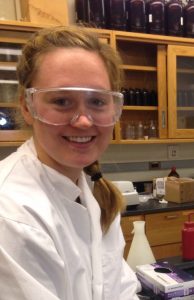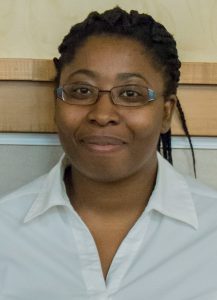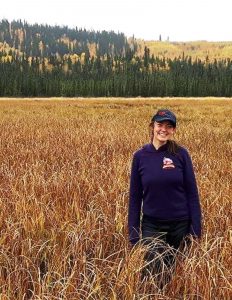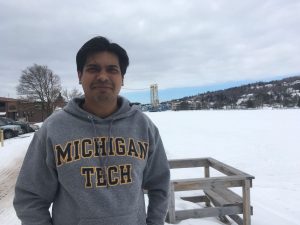Christina Welch
Chemistry
 I am a fifth-year doctoral candidate in the department of Chemistry. Briefly, my research focuses on the various roles glycans play in improve human health. Currently, we are using this knowledge to study the relationship between a well-known heart and cancer biomarker and its unconventional ligands. The exploration of this relationship has allowed us to develop a new protein and glycoprotein purification method, which was published in the Journal of Biological Chemistry. I am also working on a natural hemolysin that has therapeutic potential.
I am a fifth-year doctoral candidate in the department of Chemistry. Briefly, my research focuses on the various roles glycans play in improve human health. Currently, we are using this knowledge to study the relationship between a well-known heart and cancer biomarker and its unconventional ligands. The exploration of this relationship has allowed us to develop a new protein and glycoprotein purification method, which was published in the Journal of Biological Chemistry. I am also working on a natural hemolysin that has therapeutic potential.
The years I’ve spent at Michigan Tech has been one of immense growth and development. I am deeply grateful to my advisor, Dr. Tarun Dam, for his unwavering encouragement and character. He has helped me to become a better researcher, mentor, and person. I would also like to thank the Chemistry department, the graduate school, and the finishing fellowship committee for supporting me. Last, I would like to personally thank Dr. Debra Charlesworth, Jacque Smith, and Prof. Pushpalatha Murthy for all of the encouragement they’ve offered during my time here.






